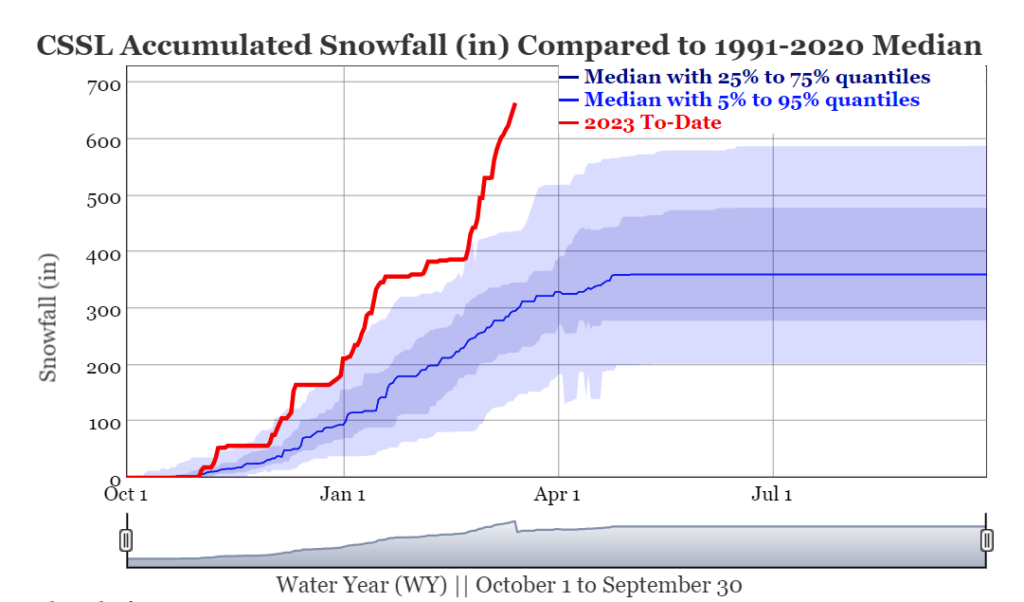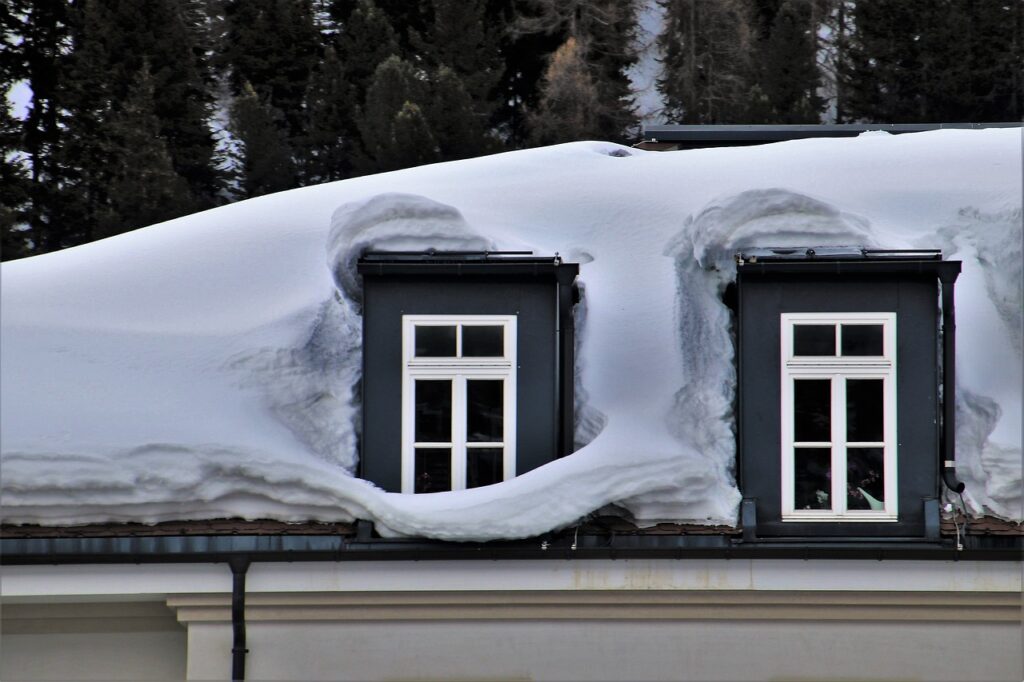Roofs and Snow Impact
According to the Sierra Snowlab, 2022/2023 is the third snowiest season since they’ve been measuring snowfall in 1970. From October 1st to March 14th, they measured 593 inches or 49 feet of snow in the mountains of Lake Tahoe. We are 7 inches from having the second snowiest season.

We’ve had numerous winter storms in the last several months and the forecast is calling for precipitation through the end of March. Temperatures are staying below normal with the arctic systems that have been dropping down into California.
When this type of weather system is accompanied by an ‘atmospheric river’, or warmer front coming from the south, rain on top of snow can freeze, and quickly add to the weight of the snow on your roof.
FEMA Recommendations
FEMA advises homeowners to look for these warning signs of dangerous snow loads:
- Sagging ceiling tiles or boards
- Popping, cracking, and creaking noises
- Interior doors that can no longer be opened or closed
- Cracks in walls or masonry
- Severe roof leaks
Modern building codes call for a roof that can hold up to 20 pounds per square foot. Many homes in Lake Tahoe are older structures, or have flat roofs that can lead to snow load issues. There are many services around the Lake Tahoe basin to have snow removed from your roof. Homeowners are advised not to climb slippery ladders or walk on the roof to remove snow.
Estimated Snow Weight
Colder and drier snow is estimated to weigh around 5 pounds a foot. When the snow becomes wet because of warmer temperatures and rain, snow can grow as heavy as more than 20 pounds per vertical foot.
Each inch of snow equals 1.25 pounds. To get an idea of snowload, multiply the depth of the snow in inches x 1.25. Because snow can have different weights, depending on the type of snow, it is good to have a professional inspect your roof if you have concerns.
Ice dams, unbalanced snow load, and roof design can lead to abnormal snow buildup. Some people remove snow using a long, snow rake while remaining on the ground. Be sure to inspect for loose shingles, power lines, branches or unsafe conditions for snow removal. Pulling heavy snow from your roof can cause a risk to your personal safety.
Ice can weigh more than 57 pounds per cubic foot, but ice dams can be prevented using heating cables, applied during the summer. These are weather-resistant and insulated electric cables that can warm up downspouts, overhangs or areas of the roof that are susceptible to ice dams.
Be safe this winter and ask a professional to examine your roof and remove snow if necessary.




